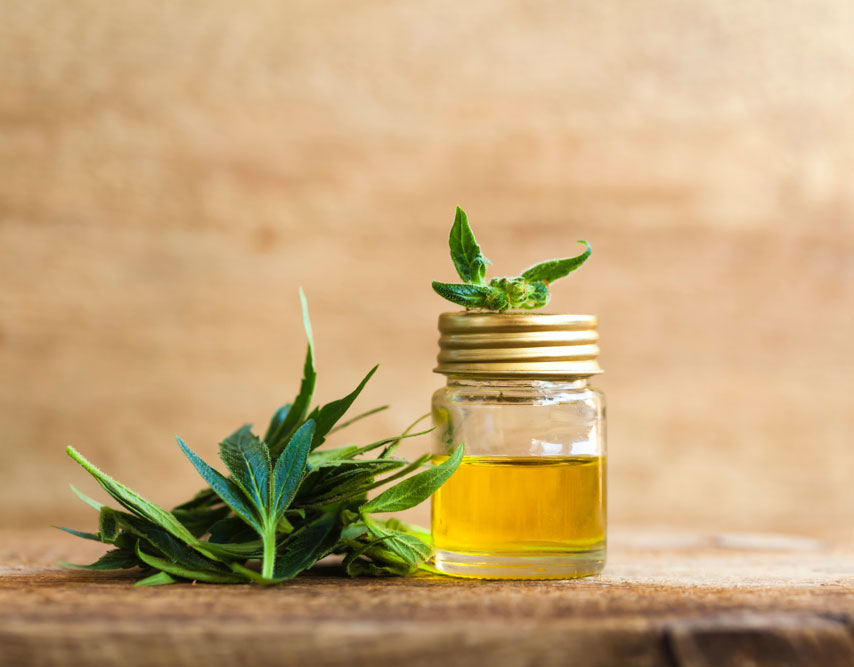According to recent market research, cannabidiol (CBD) sales are expected to surpass $20 billion by 2024. Although the exploding CBD industry offers numerous options to the buyer, it can be overwhelming to navigate because of a general lack of regulations surrounding how CBD is marketed.
One of the most significant problems within the industry is the lack of consumer-friendly information about the differences between full-spectrum and broad-spectrum hemp extracts. Although broad-spectrum and full-spectrum hemp extracts harbor subtle differences, they are significant enough to influence the overall biochemical activity and potential effects of the end product and should be considered when you’re looking to purchase.
Continue reading to learn more about the differences between broad-spectrum and full-spectrum hemp extract and how to choose the right extract to fit your needs.
CBD in the Endocannabinoid System and Beyond
To appreciate the differences between full-spectrum and broad-spectrum hemp extract, it’s crucial to understand how CBD functions within the body. The many potential health benefits of CBD are mediated by CBD’s interactions with the endocannabinoid system (ECS) and a variety of non-endocannabinoid receptors and signaling pathways.
The Endocannabinoid System
The endocannabinoid (ECS) system is a complex network of receptors and signaling molecules that regulate many aspects of human physiology, including appetite, cognition, immune function, inflammation, pain and sleep.
The ECS includes endocannabinoids that are produced within the body, including anandamide and 2-arachidonoylglycerol, and the G-protein-coupled CB1 and CB2 receptors with which they interact. It also contains several enzymes that control endocannabinoid synthesis and degradation, including fatty acid amide hydrolase (FAAH).
Unlike its sister phytocannabinoid THC, which interacts directly with CB1 and CB2 receptors, CBD indirectly influences the ECS, enhancing endocannabinoid tone. This leads to downstream improvements in systems regulated by the ECS, such as the central nervous system, gut, and immune system. Put simply, the ECS is responsible for creating homeostasis, or balance, within various systems in the body.
Non-Endocannabinoid Receptors and Pathways
CBD and other cannabis phytocannabinoids have functions beyond the ECS, interacting with a wide range of non-ECS receptors and signaling pathways. CBD interacts with the 5HT1a serotonin receptor, PPAR receptors, GPR55 receptors, TRP channels, and the Wnt/beta-catenin pathway.
In addition to acting at non-ECS receptors, CBD also inhibits endocannabinoid breakdown, boosting circulating levels of anandamide, and serves as allosteric receptor modulator, either amplifying or reducing the responsiveness of cell receptors to their respective ligands.
How to Choose the Right Hemp Extract for Your Needs
Full-Spectrum Hemp Extract
A full-spectrum hemp extract contains CBD along with a low level of THC (less than .3 percent) that is naturally present in hemp and compliant with 2018 Farm Bill standards. THC is an agonist at CB1 and CB2 receptors. At low levels, it potentiates endocannabinoid system activity, rendering CBD more effective, rather than producing the pronounced (and often disconcerting) psychoactive effects for which it originally became famous. CBD, in turn, is said to counteract the negative psychological effects of THC.
Pharmacokinetic research indicates that full-spectrum hemp extract has a linear dose-response curve, with higher doses enhancing anti-inflammatory and anti-nociceptive activity, unlike the clinically limiting bell-shaped curve characteristic of isolated CBD. Preclinical research indicates that CBD and THC also work together to modulate neuronal activity, dampening hyper-excitability.
The beneficial synergism between THC and CBD is referred to as the entourage effect and produces more profound benefits than either compound used alone. If you are seeking potent anti-inflammatory activity and a reset for your endocannabinoid system, a full-spectrum hemp extract may be the best option for you.
Broad-Spectrum Hemp Extract
Although THC potentiates ECS activity, some people prefer a THC-free extract. For these individuals, a broad-spectrum hemp extract can be a good choice. Broad-spectrum hemp extracts contain an array of hemp-based phytocannabinoids and terpenoids that work synergistically with CBD to modulate the ECS and may produce powerful health benefits.
THC and CBD are just two of the phytocannabinoids found in hemp; in fact, hemp plants boast more than 100 unique phytocannabinoids, including lesser-known ones such as cannabigerol (CBG) and cannabichromene (CBC). These lesser-known but equally important phytocannabinoids also influence endocannabinoid breakdown and could protect against adverse effects of THC.
Terpenoids are aromatic molecules responsible for the distinct odor of cannabis and many other plants, including citrus fruits, evergreen trees, black pepper and oregano. Cannabis terpenoids have anti-inflammatory effects and contribute to the entourage effect observed in cannabis plants. Beta-caryophyllene, one of the most abundant terpenoids in cannabis, enhances the potency of THC-free hemp extracts by acting as a full agonist at the CB2 receptor. This means that with a broad-spectrum extract, you can get the best of both worlds—the potential healing properties of CBD and a spectrum of other phytocannabinoids without psychoactive effects.
Lipid Nanoparticle Delivery System Optimizes the Benefits of CBD
Pharmacokinetic research indicates that lipids significantly enhance the bioavailability of CBD and other phytocannabinoids. At Quicksilver Scientific, we’ve taken this research to the next level, packaging our full-spectrum and broad-spectrum hemp extracts in an advanced lipid nanoparticle delivery system that bypasses hepatic first-pass metabolism, allowing for rapid uptake of healing hemp-based compounds into your cells.




